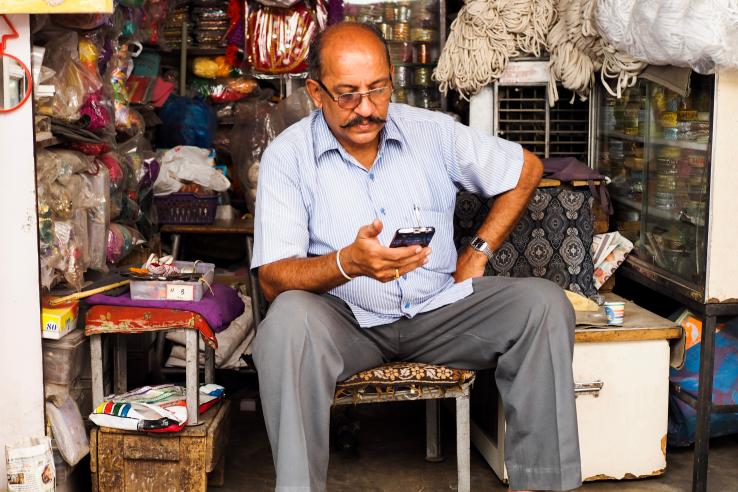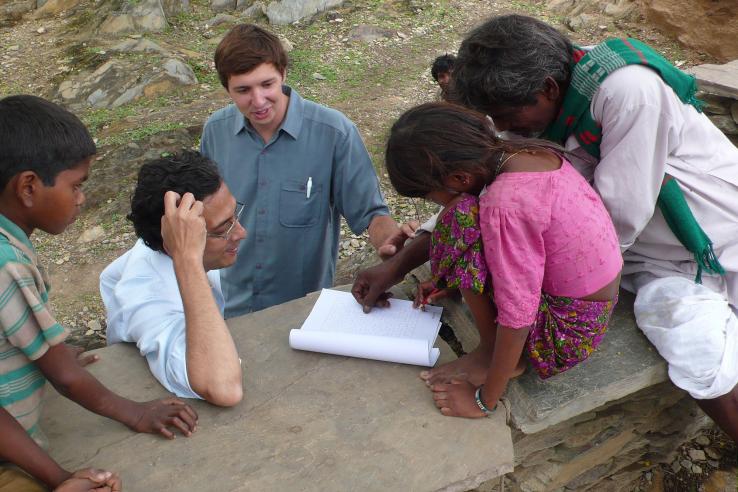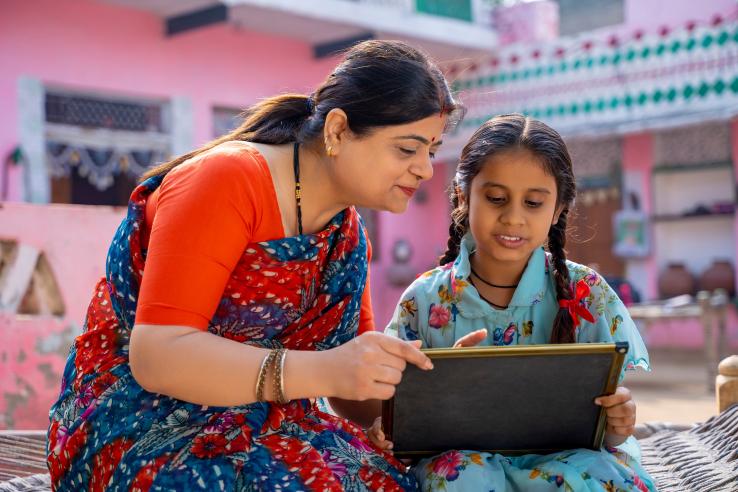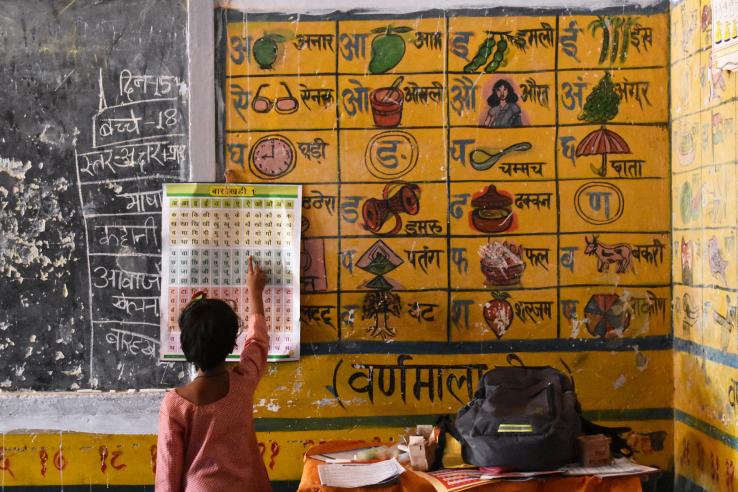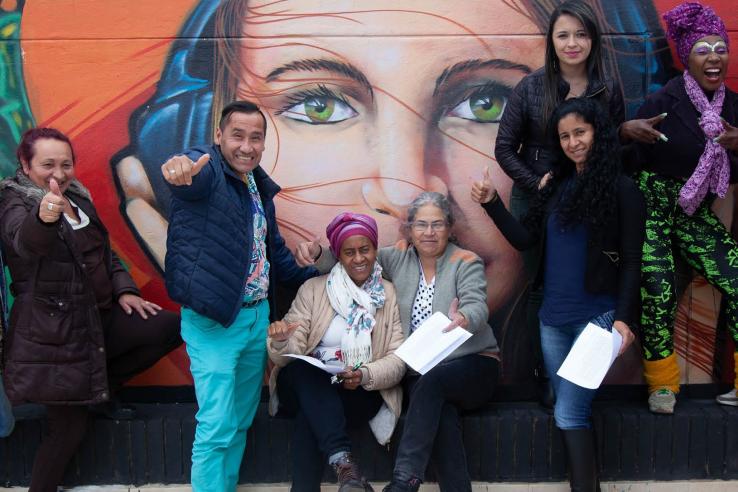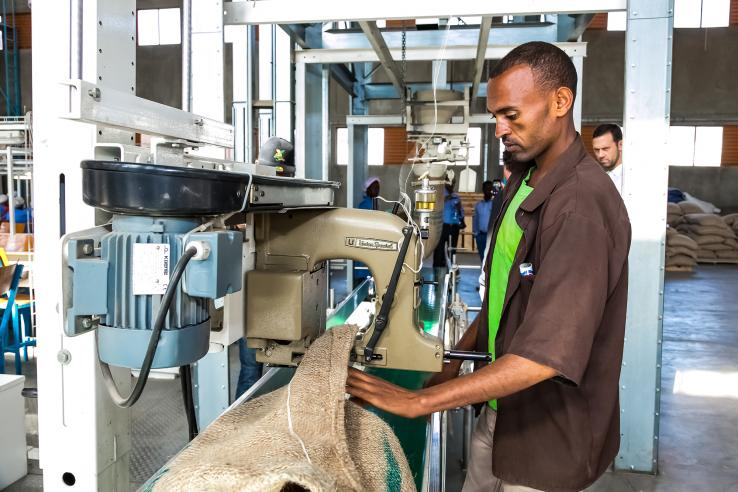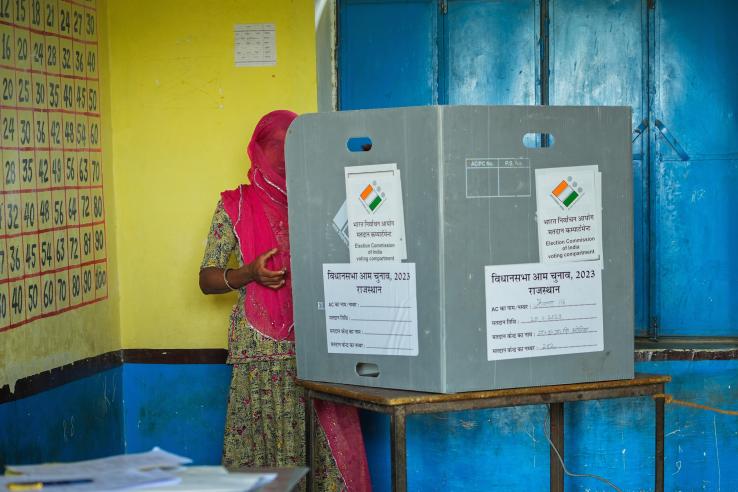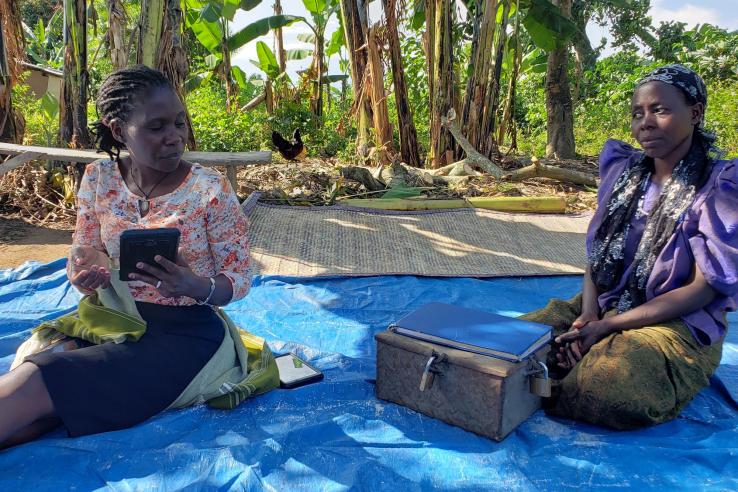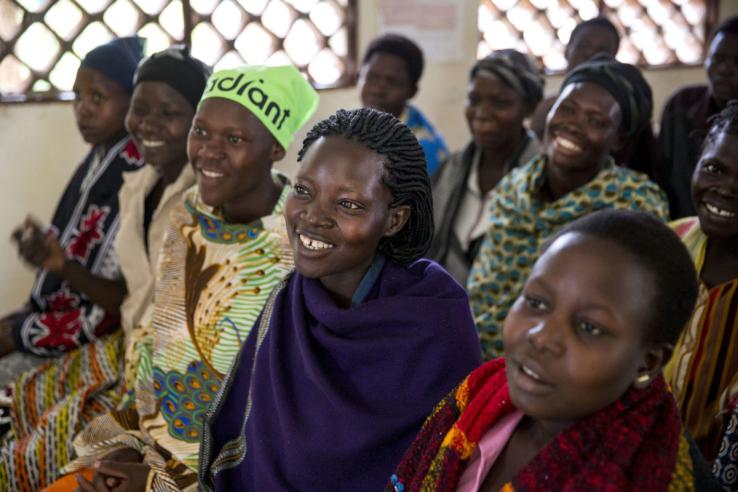Displaying 586 - 600 of 1291
Evaluation
Researchers evaluated the impact of bank accounts that allowed mobile deposits on savings behavior in Sri Lanka. Few account holders used the service frequently, even when offered for free. Mobile-linked accounts increased savings deposits with the partner bank and formal banks more generally but had no impact on total savings.
Evaluation
Researchers partnered with the Indian NGO Pratham to evaluate whether different technologies and implementation methods can increase students’ English test scores. Overall, the interventions were effective at increasing students’ knowledge of English.
Evaluation
Researchers conducted a randomized evaluation to measure the demand for private tutoring services and estimate how pricing can influence enrollment in these services. Results suggest that higher prices reduced demand for private tutoring and also led to higher drop-out rates over time, with no impact of tutoring on test scores.
Evaluation
Researchers evaluated the impact of immediately following up an early childhood development intervention for one-to-three-year-old children with a second intervention for three-to-six-year-olds. The early and late interventions each increased IQ and school readiness for children, although there was not enough evidence to determine whether offering both programs was more effective than offering one.
Evaluation
Researchers are designing and evaluating a soft skills training program that incorporates imagery for entrepreneurs who have experienced violence or other traumatic or challenging life circumstances in Bogotá, Colombia.
Evaluation
Researchers conducted a randomized evaluation of job fairs in Addis Ababa, Ethiopia, to test the effect of face-to-face interactions between formal firms and job seekers on workers’ chances of getting a job.
Evaluation
Researchers evaluated the impact of exposure to and incentives to consume discordant media on political attitudes and behaviors in Turkey. Participants changed their media consumption habits, trusted discordant media sources more, and had less polarized attitudes towards the government, but did not change how much they trusted people with opposing political views.
Evaluation
Researchers evaluated the impact of a flexible microloan product on new clients' repayment behavior, business outcomes, and client satisfaction. The results showed that the flexible loan led to some shifts in investment behavior but had no average impact on revenue or profits and led to higher default.
Evaluation
Researchers evaluated a voter information campaign and exploited the random assignment of reservations for women in village councils to measure the impact of information and reduced incumbent advantage on village council elections. Both interventions increased the number of candidates and drove the worst performers out of the race, though in the case of the voter campaign they had short-term costs in terms of officials’ performance post-election.
Evaluation
Researchers conducted a randomized evaluation to test whether supplementing SGs with additional funds impacts SG members' financial access and behavior. Capital infusions to Sgs increased members' access to loans and members received more money at the end of year payout, without increasing defaults and debt.
Evaluation
The researcher used a randomised evaluation in Kenya and Uganda to study the impact of varying access to information about prices in buying and selling markets, and encouraged informal traders to enter new markets and take advantage of price differences.
Evaluation
An evaluation of a microenterprise assistance program, with and without involving male partners, found that it improved women’s economic outcomes, but that depended on the quality of women’s relationships with their intimate partners. While the program had no impact on IPV, involving male partners did improve relationship quality.
Evaluation
Researchers studied the effects of a university policy in South Africa to promote racial integration, by randomly allocating incoming students to roommates of a different race. The policy reduced negative racial stereotypes among white students, improved attitudes and behaviors towards members of other races, and improved academic performance among black students.
Evaluation
Researchers conducted a randomized evaluation to test the impact of introducing a pay-as-you-go car insurance contract, which reduces minimum purchase requirements, to uninsured drivers in California. Applicants who were offered this type of insurance were nearly twice as likely to purchase car insurance than those who were offered a traditional car insurance contract, but this impact faded over time.
Evaluation
Researchers conducted a randomized evaluation to test the impact of text message reminders on rates of failure to appear in court (FTA) among people who are unhoused and housed in rural Shasta County, California. The reminders reduced FTA rates for the housed population, but did not impact FTA rates for people experiencing homelessness.
